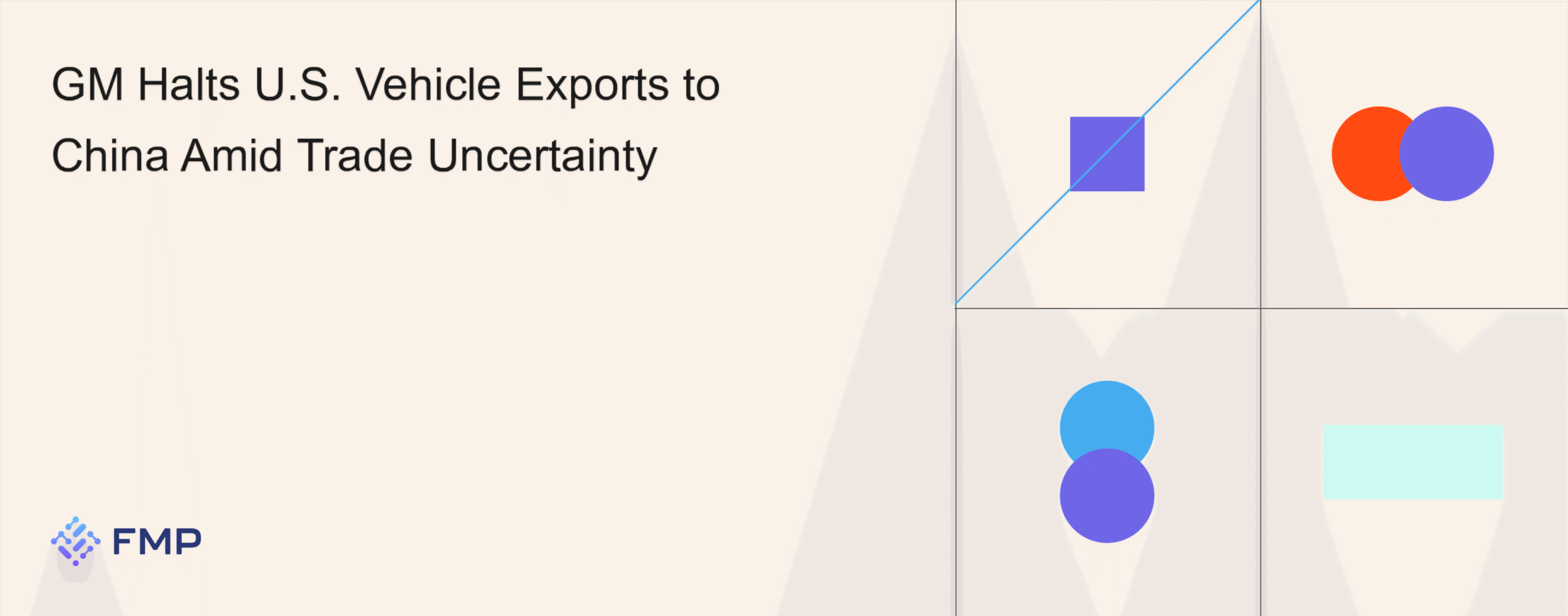General Motors (NYSE:GM) has announced it will stop exporting U.S.-made vehicles to China, citing deteriorating economic conditions and shifting trade dynamics. The decision affects GM’s Durant Guild, a premium import division that represented a small fraction—less than 0.1%—of the company’s Chinese sales volume.
This move comes just as U.S.-China trade negotiations enter a sensitive phase, with tariffs remaining a central point of contention. Previously, goods shipped from the U.S. to China faced import duties of over 100%, until both nations agreed to suspend new levies for 90 days.
“Due to significant changes to economic conditions, we have decided to restructure The Durant Guild and correspondingly optimize GM China’s operations,” a GM spokesperson said.
Strategic Impact and Market Context
While Durant Guild volumes were minimal, the restructuring points to deeper concerns about the long-term viability of U.S. auto exports to China—especially as domestic Chinese automakers grow increasingly competitive and trade barriers remain unpredictable.
Investors tracking the financial implications of this shift can assess GM’s export-driven revenue segments using the Revenue Product Segmentation API. It provides detailed revenue breakdowns by product category and geography, critical for evaluating regional risk exposure.
In April, Ford Motor Co. (NYSE:F) also paused exports to China, further signaling a broader industry pivot away from reliance on bilateral trade channels in the face of rising geopolitical tension.
What This Means for GM’s Outlook
The halt is unlikely to dent GM’s overall financials in the short term, but it reinforces the company’s pivot toward localization and market-specific manufacturing strategies. Investors evaluating GM’s strategic positioning and financial resilience in this volatile climate can review its forward-looking metrics via the Financial Growth API, which tracks growth trends in revenue, EBITDA, and net income—key for assessing longer-term trajectory.
GM’s decision underscores the challenges global automakers face as trade friction reshapes global supply chains. As discussions between Washington and Beijing continue, more automakers may follow suit—favoring regional production models over cross-border exports.




